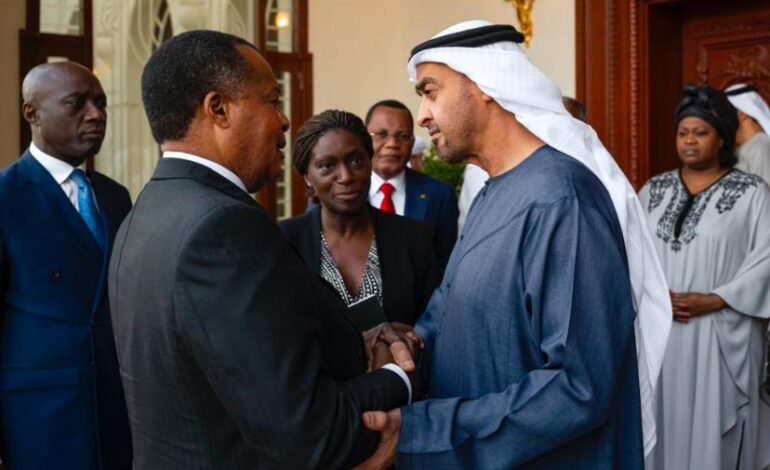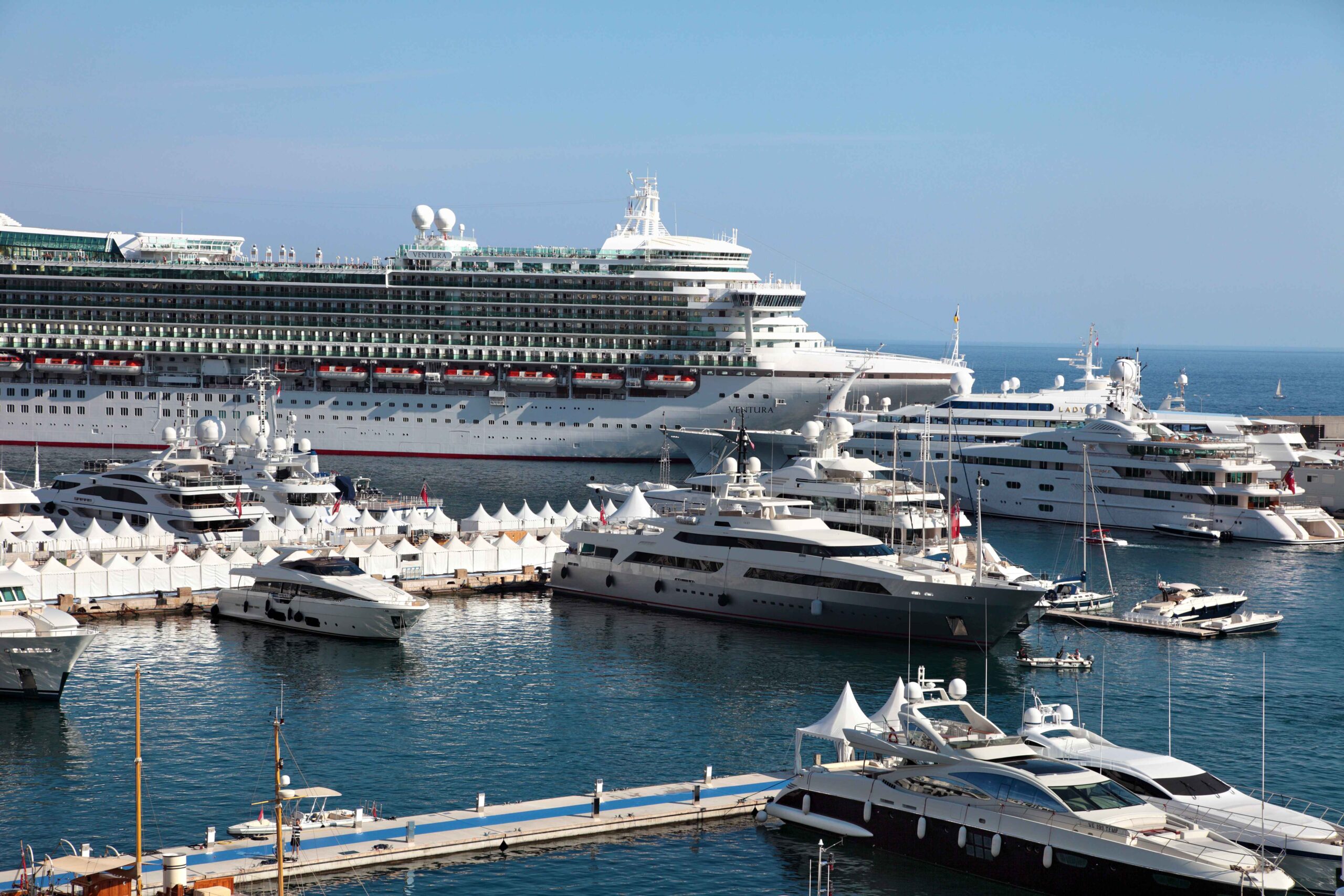Strengthening Humanitarian Bonds: UAE President’s Vision for Global Philanthropy

On April 8, 2025, President His Highness Sheikh Mohamed bin Zayed Al Nahyan met with the head of a prominent charitable foundation to discuss collaborative approaches to humanitarian assistance. The meeting highlighted the UAE’s ongoing leadership in global aid, focusing on partnerships, sustainable solutions, and long-term impact.
A Meeting Rooted in Compassion and Vision
On a significant day in April 2025, the Presidential Palace of the United Arab Emirates welcomed a distinguished guest—the head of a leading international charitable foundation. The atmosphere was one of mutual respect, shared values, and a unified goal: to serve humanity in meaningful and lasting ways.
His Highness Sheikh Mohamed bin Zayed Al Nahyan, known not only for his leadership but also for his strong humanitarian values, engaged in an in-depth dialogue with the foundation’s leader. The meeting wasn’t merely ceremonial—it was a blueprint for expanding the global reach of compassion.
The UAE, under the leadership of Sheikh Mohamed, has long been recognized for its progressive humanitarian approach. From responding swiftly to natural disasters to spearheading development projects in underprivileged regions, the country has redefined how modern nations can embody generosity on the global stage.
Foundations of Global Humanitarian Leadership
Sheikh Mohamed emphasized that true leadership in today’s world extends beyond political power—it encompasses the ability to reach out, lift others, and create networks of kindness that transcend borders. His meeting with the foundation’s head reaffirmed this vision.
For decades, the UAE has played a vital role in global humanitarian initiatives. Whether through emergency medical missions, educational programs for displaced children, or infrastructure development in disaster-hit regions, the country has shown that aid should not be reactive alone but proactive, structured, and impactful.
The meeting centered on identifying synergies between the UAE’s efforts and those of the charitable foundation. Their shared interest in humanitarian welfare created a fertile ground for brainstorming solutions that could be implemented collaboratively on a larger scale.
Creating a Strategic Framework for Collaboration
Rather than focusing solely on monetary contributions, the leaders delved into the importance of shared infrastructure, human capital, and coordinated logistics. It was made clear that the UAE is not just a benefactor—it is a partner, a builder, and a collaborator in the global mission to help those in need.
During the discussion, emphasis was laid on enhancing existing projects in regions facing prolonged crises. The foundation’s vast on-ground network, when combined with the UAE’s diplomatic and logistic strengths, could improve outreach and speed of delivery significantly.
Both leaders recognized the importance of data-driven decision-making. By leveraging technology and real-time data, they aim to ensure that humanitarian aid is not just generous but also strategic, targeted, and sustainable.
Health, Education, and Food Security: Key Focus Areas
One of the core outcomes of the meeting was the reaffirmation of three crucial sectors that require urgent and continuous attention: health, education, and food security.
Healthcare remains a top priority, especially in areas where access to medical services is either limited or non-existent. The UAE has consistently supported mobile clinics, medical supply chains, and vaccination programs, and this partnership is expected to take those efforts to the next level.
Education was discussed not just as a tool for learning, but as a means of breaking the cycle of poverty. The leaders spoke about launching education campaigns for children in war-torn and refugee regions, with the dual aim of providing knowledge and restoring hope.
Food security, meanwhile, was identified as an area where fast, scalable solutions are essential. From deploying food packages in famine zones to investing in agricultural infrastructure for long-term impact, the strategies discussed reflected a deep understanding of both immediate needs and future resilience.
A Culture of Giving and Inclusion
The UAE’s commitment to humanitarianism is deeply ingrained in its culture and leadership. Sheikh Mohamed bin Zayed’s personal involvement in humanitarian dialogues has always sent a strong message to the international community: that the UAE’s help comes with no strings attached, only with sincerity.
During the meeting, Sheikh Mohamed reiterated the importance of inclusion in aid delivery. The aim is to ensure that all communities—regardless of religion, race, or political background—receive the support they need. This inclusive approach has been a defining feature of the UAE’s international aid policies.
The foundation’s head acknowledged the UAE’s unique role in maintaining neutrality and focus during crises. Together, they discussed protocols to ensure that humanitarian assistance is delivered with dignity and cultural sensitivity.
Youth and Innovation in Humanitarian Work
Another major highlight of the meeting was the involvement of youth and innovation in philanthropy. Both leaders recognized that the next generation of changemakers must be involved in designing and implementing aid programs.
Plans were discussed to create platforms for young volunteers and innovators to contribute to global welfare. From designing mobile health apps to launching eco-friendly relief products, youth-driven initiatives are expected to play a pivotal role in shaping the future of humanitarianism.
The UAE, with its thriving innovation hubs and startups, could serve as a launchpad for such ideas. The charitable foundation, in turn, could ensure these ideas reach the people who need them the most.
Empowering Women in Crisis Regions
An important segment of the discussion focused on empowering women, especially in areas affected by conflict, poverty, or displacement. Women and children are often the most affected during humanitarian crises, yet their voices are the least heard.
The UAE and the foundation plan to initiate skill-building workshops, financial aid programs, and educational grants targeted specifically at women. These initiatives aim not just to provide temporary relief but to enable long-term self-reliance.
Sheikh Mohamed emphasized that empowering women is essential to rebuilding communities and restoring stability. This progressive outlook is reflective of the broader policies already in motion across the UAE.
Strengthening Emergency Response Systems
In light of recent global events—natural disasters, armed conflicts, pandemics—the discussion also focused on improving emergency response systems. The need for speed, coordination, and trust during such times was discussed at length.
The UAE already has a robust system in place, including the Emirates Red Crescent, which has been instrumental in delivering rapid assistance. By integrating with the foundation’s network, this system can become even more effective, with reduced response times and broader coverage.
Discussions included establishing joint command centers during emergencies, cross-border training programs for relief workers, and technological innovations like drone-based deliveries for hard-to-reach areas.
The UAE’s Legacy of Humanitarianism
This meeting is part of a broader legacy the UAE has built over the years. Inspired by the founding father, Sheikh Zayed bin Sultan Al Nahyan, the country has always believed in giving back to the world. Humanitarianism is not treated as an act of charity—it is a moral responsibility embedded in the UAE’s national identity.
Over the years, the UAE has been consistently ranked among the world’s top donors of official development aid relative to its national income. Its aid programs have supported countries across Africa, Asia, the Middle East, and Latin America.
The discussions during the meeting served to reinforce this legacy, while setting the stage for more ambitious and integrated efforts in the future.
Toward a More Compassionate Future
As the meeting concluded, the atmosphere was one of optimism and purpose. Two visionary leaders, united by a shared mission, had laid the groundwork for something greater than just policy—it was the beginning of a movement.
A movement where nations and organizations unite not just in times of disaster, but in the everyday battle against poverty, inequality, and despair. A movement where kindness is backed by action, strategy, and vision.
The UAE’s role in shaping this future remains crucial. With leaders like Sheikh Mohamed bin Zayed Al Nahyan at the helm, and through strong partnerships with global charitable foundations, the dream of a more compassionate, equitable world no longer feels out of reach—it feels inevitable.







